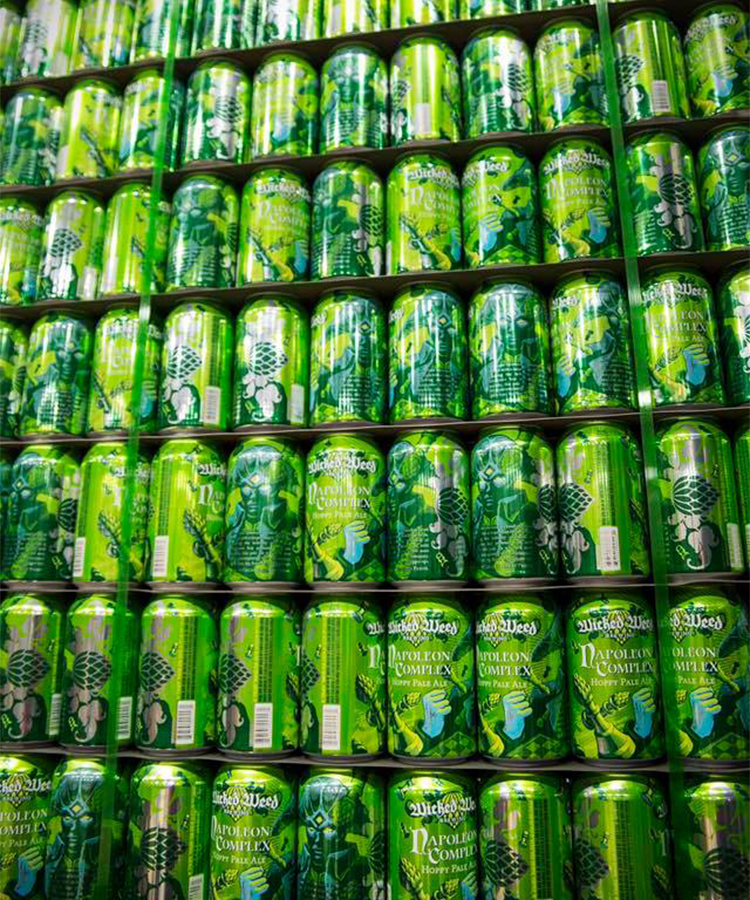Anheuser-Busch InBev, the largest beer company in the world, purchased its 10th craft brewery, Wicked Weed, on May 3. The buyout sent shock waves rippling through the beer world. Now, those waves are hitting the every day consumer. Craft beer bars across the United States are refusing to sell Wicked Weed or any other AB InBev-owned beer.
It started with beer events. Breweries like Jack’s Abby Brewing dropped out of Wicked Weed’s Funkatorium Invitational sour beer festival.
“As others have eloquently noted in the past day, the business practices of AB InBev are frequently at odds with the interests of small, independent breweries,” Jack’s Abby wrote on its website. “By attending this festival we’d be, in whatever small way, supporting and encouraging those very practices.”
The North Carolina Craft Brewers Guild revoked Wicked Weed’s membership. BeerAdvocate revoked Wicked Weed’s invitation to the Beer Meets Wood festival.
“As a family-owned, small business that’s been a part of the beer community since 1996, we prefer to spend our money with truly independent brewers, not a corporate brewer whose self-interests threaten thousands of independent brewers around the world,” Todd Alström, the founder of BeerAdvocate tells me in an email.
The business practices in question are the same business practices that Boston Beer Company founder Jim Koch mentioned in a New York Times opinion piece titled “Last Call for Craft Beer.” AB InBev owns more than 45 percent of the entire U.S. beer market, and it owns a long list of brands from macro to craft. It also owns a large section of beer distribution — something that stymies craft beer brands.
“Just over four years ago, we started out with a simple idea: make great beer,” Wicked Weed wrote on its Facebook page. “From west-coast IPAs, to barrel-aged sours, we’ve been able to create world-class ales in a city that we love. We’ve grown from a small Brewpub with 60 employees, to a company with 4 locations and over 200 employees. In order to innovate, push the boundaries, and grow, we’ve decided to take on the High End branch of Anheuser-Busch as a strategic partner.”
In solidarity with other brewers, craft beer shops and bars decided to stop selling Wicked Weed and other AB InBev products. It started in Asheville, North Carolina, where Wicked Weed is based, then moved to Charlotte, North Carolina, and beyond. Bars and bottle shops from the Carolinas to Texas to Colorado have announced their last purchase of any AB InBev products.
Choosing to align itself with a “strategic partner” muddied the line of if Wicked Weed is even a true craft brewery by the Brewers Association definition. Just a day after Wicked Weed sold, however, Heineken announced that it purchased the remaining 50 percent of Lagunitas, and the craft beer world didn’t have the same reaction. Wicked Weed’s reaction has everything to do with the story that Wicked Weed sold to Asheville’s beer community, Alström tells me.
“They’re pissed as they feel betrayed,”Alström says. “And they’re doubly pissed as they loath A-B InBev.”
And this reaction is just a hint at what’s to come after future buyouts.
“This is just the beginning of the backlash that’s coming for corporate brewers and the brands that they acquire,”Alström says. “Beer consumers are becoming savvy as hell. They want authentic and high-quality beers from independent brewers. There’s really no turning back for these consumers.”
Update: This story has been edited to include comments from Todd Alström.
